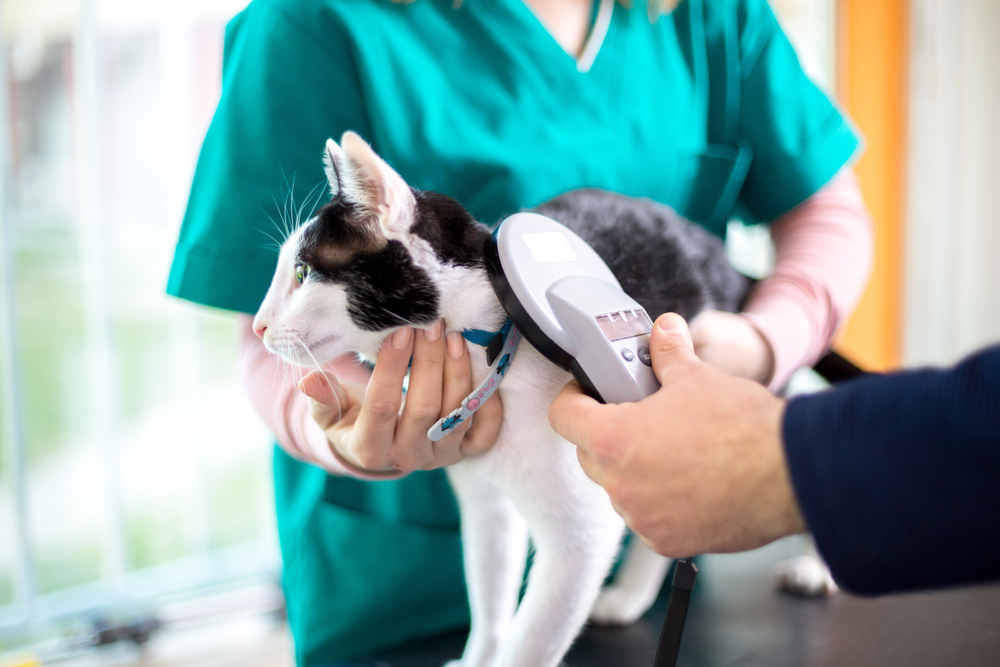
Life in West Hartford, Kensington, and Windsor is full of moments spent enjoying the outdoors with our pets—strolling through Fernridge Park, exploring trails near Windsor Meadows, or simply enjoying the backyard. But as any pet owner knows, accidents happen. A loose fence board, a startled pup slipping out of a leash, or a cat with a knack for squeezing through the smallest of openings can turn a routine day into a stressful search.
Traditional ID tags are a great first line of defense, but they aren’t foolproof. Tags can fall off, collars can break, and unfortunately, not everyone who finds a lost pet knows to check for identification. That’s where microchipping changes the game.
What Is a Microchip, and How Does It Work?
A microchip is a tiny device—about the size of a grain of rice—that’s implanted just beneath your pet’s skin, usually between the shoulder blades. It carries a unique identification number that, when scanned by a veterinary office or animal shelter, links to your contact information in a secure database. Unlike collars and tags, a microchip is permanent and can’t be removed or lost.
Why Microchipping Matters in Connecticut
Living in Connecticut, we see the best of all four seasons—warm summers, snowy winters, and everything in between. Unfortunately, this also means that a lost pet could face serious risks if they wander too far from home.
Winter hazards: A pet lost in the cold can suffer from frostbite or hypothermia before they’re found.
Storms and fireworks: Whether it’s a summer thunderstorm or Fourth of July celebrations, loud noises can send pets running.
Wildlife encounters: In wooded areas around Windsor and Kensington, pets can get spooked by wildlife or venture too far chasing a squirrel or rabbit.
A microchip significantly increases the chances of a lost pet making it back home safely. Studies show that dogs with microchips are more than twice as likely to be reunited with their owners, while microchipped cats are 20 times more likely to return home compared to those without.
Common Questions About Microchipping
Does It Hurt? Not at all. The process is quick and similar to a routine vaccination—most pets don’t even flinch.
Will It Track My Pet’s Location? A microchip isn’t a GPS tracker. Instead, it serves as a permanent form of identification that can be scanned at any veterinary clinic or shelter.
What If I Move? That’s the beauty of microchips—you just update your contact information in the database. It’s a simple step that ensures you can always be reached.
A Small Step with Big Benefits
At Connecticut Veterinary Center, we see lost pets brought in regularly, and too often, those without microchips have no way of finding their way back home. The peace of mind that comes with microchipping is priceless—it’s a simple, one-time procedure that can make all the difference.
If your pet isn’t microchipped yet, schedule an appointment with Connecticut Veterinary Center and make sure your pet always has a way home. Visit our office in West Hartford, Kensington, or Windsor, Connecticut. Call (860) 233-8564, (860) 229-8960, or (860) 688-2026 today.







